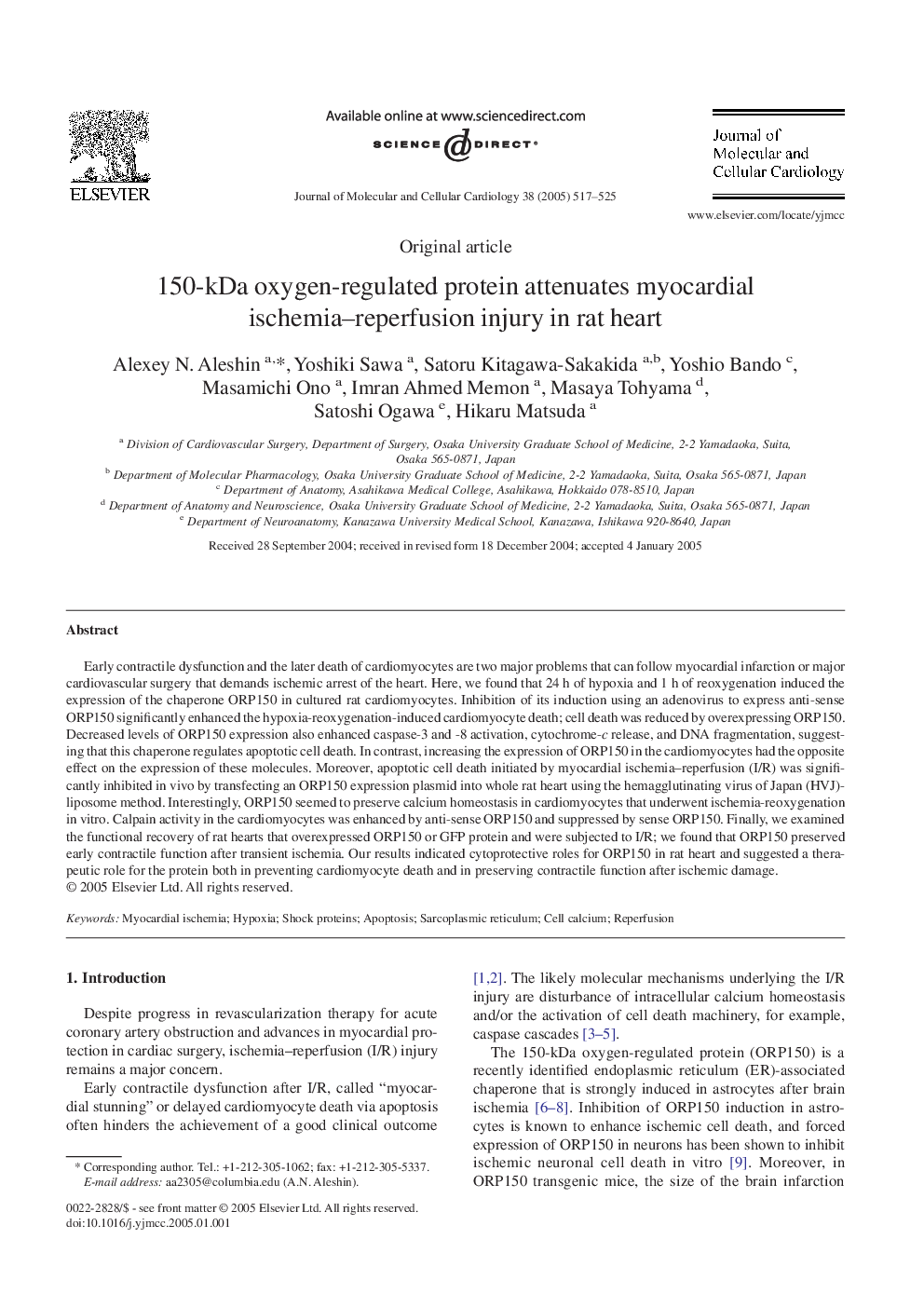| Article ID | Journal | Published Year | Pages | File Type |
|---|---|---|---|---|
| 10954618 | Journal of Molecular and Cellular Cardiology | 2005 | 9 Pages |
Abstract
Early contractile dysfunction and the later death of cardiomyocytes are two major problems that can follow myocardial infarction or major cardiovascular surgery that demands ischemic arrest of the heart. Here, we found that 24Â h of hypoxia and 1Â h of reoxygenation induced the expression of the chaperone ORP150 in cultured rat cardiomyocytes. Inhibition of its induction using an adenovirus to express anti-sense ORP150 significantly enhanced the hypoxia-reoxygenation-induced cardiomyocyte death; cell death was reduced by overexpressing ORP150. Decreased levels of ORP150 expression also enhanced caspase-3 and -8 activation, cytochrome-c release, and DNA fragmentation, suggesting that this chaperone regulates apoptotic cell death. In contrast, increasing the expression of ORP150 in the cardiomyocytes had the opposite effect on the expression of these molecules. Moreover, apoptotic cell death initiated by myocardial ischemia-reperfusion (I/R) was significantly inhibited in vivo by transfecting an ORP150 expression plasmid into whole rat heart using the hemagglutinating virus of Japan (HVJ)-liposome method. Interestingly, ORP150 seemed to preserve calcium homeostasis in cardiomyocytes that underwent ischemia-reoxygenation in vitro. Calpain activity in the cardiomyocytes was enhanced by anti-sense ORP150 and suppressed by sense ORP150. Finally, we examined the functional recovery of rat hearts that overexpressed ORP150 or GFP protein and were subjected to I/R; we found that ORP150 preserved early contractile function after transient ischemia. Our results indicated cytoprotective roles for ORP150 in rat heart and suggested a therapeutic role for the protein both in preventing cardiomyocyte death and in preserving contractile function after ischemic damage.
Related Topics
Life Sciences
Biochemistry, Genetics and Molecular Biology
Cell Biology
Authors
Alexey N. Aleshin, Yoshiki Sawa, Satoru Kitagawa-Sakakida, Yoshio Bando, Masamichi Ono, Imran Ahmed Memon, Masaya Tohyama, Satoshi Ogawa, Hikaru Matsuda,
